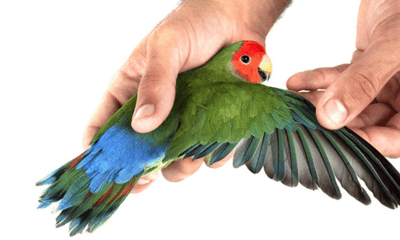In the heart of Australia, where pet ownership rates are among the highest in the world, dog owners are increasingly faced with a plethora of choices when it comes to feeding their furry friends. One such choice is whether to feed their dogs grain-free food. This decision is often influenced by trends, health concerns, and the desire to offer the best nutrition for their pets.
But what does going grain-free really mean for your dog, and is it the right choice for every pet?

Photo by M Burke
The Rise of Grain-Free Dog Food
Grain-free dog food has gained popularity over the years, driven by beliefs that it's a healthier, more natural option for dogs, mirroring their ancestral diet. In Australia, where pet health and nutrition are taken seriously, this trend has seen a significant uptake.
Pros of Grain-Free Dog Food
1. Allergy and Sensitivity Reduction
For dogs with specific grain allergies or sensitivities, grain-free diets can lead to improved skin health, fewer digestive issues, and an overall increase in energy levels. A study in the Journal of Animal Physiology and Animal Nutrition highlights the benefits of grain-free diets for dogs with sensitivities.
2. Weight Management
Grain-free foods often have higher protein content and lower carbohydrate levels, which can help in weight management and maintaining lean muscle mass. This is particularly beneficial given the increasing rates of obesity in pets, including in Australia.
3. High-Quality Ingredients
Many grain-free dog foods include high-quality protein sources, such as real meat, fish, or poultry, and are supplemented with fruits and vegetables, providing a well-rounded diet.
Cons of Grain-Free Dog Food
1. Risk of Heart Disease
Recent studies, including research published by the FDA, have indicated a potential link between grain-free diets and an increased risk of canine dilated cardiomyopathy (DCM), particularly in breeds not genetically predisposed to the condition. This has raised concerns among Australian dog owners and veterinarians.
2. Nutritional Imbalances
Some grain-free diets may lack certain essential nutrients that grains can provide. It's crucial to ensure that the diet is balanced and meets all of a dog's nutritional needs.
3. Cost
High-quality grain-free dog food often comes at a higher price point. For Australian pet owners, this can mean a significant increase in the cost of pet care.
Considering Australian Dogs' Needs
In Australia, the climate, lifestyle, and available pet care services can influence the suitability of grain-free diets. For example, active dogs such as Jack Russells and the ever popular Bordoodle (a Border Collie and Poodle mix), might benefit from the higher protein content, while others might do better with a balanced diet that includes grains.
The Importance of Veterinary Advice
Consulting with a veterinarian before transitioning your dog to a grain-free diet is a crucial step in ensuring the health and well-being of your pet. Veterinarians bring a wealth of knowledge and experience, grounded in the latest scientific research and nutritional guidelines. They can assess your dog's health status, consider any existing conditions, and evaluate the potential benefits and risks of a grain-free diet specific to your dog's unique needs.
Your veterinarian can look into how any dietary change affects your dog's health, addressing specific concerns such as allergies, sensitivities, or weight management, without inadvertently causing nutritional deficiencies or other health issues. They can also suggest regular check-ups and tests to monitor your dog's response to the diet, adjusting as necessary to ensure optimal health.
This proactive approach helps in identifying any potential concerns early on, allowing for timely interventions that can prevent more serious health issues down the line. Trusting in veterinary expertise ensures that your pet's diet supports their health and vitality, reflecting the deep bond and commitment we have towards our furry family members.
Conclusion
The decision to switch to grain-free dog food is not one to be taken lightly. While there are undeniable benefits for some dogs, it's essential to weigh these against the potential risks and consider the specific needs of your pet. Australian dog owners are fortunate to have access to a wide range of dietary options and veterinary expertise to help make informed decisions.
Ultimately, the goal is to provide a diet that supports your dog's health, happiness, and well-being, whether that includes grains or not. As we continue to learn more about canine nutrition, it's clear that the best choice will always be one that is made with careful consideration and love for our canine companions.
While this outline covers the key points you'd want to elaborate on in a full-length article, diving deeper into each section with data, studies, and Australian-specific considerations will help you reach the desired word count and provide valuable insights to your readers.






